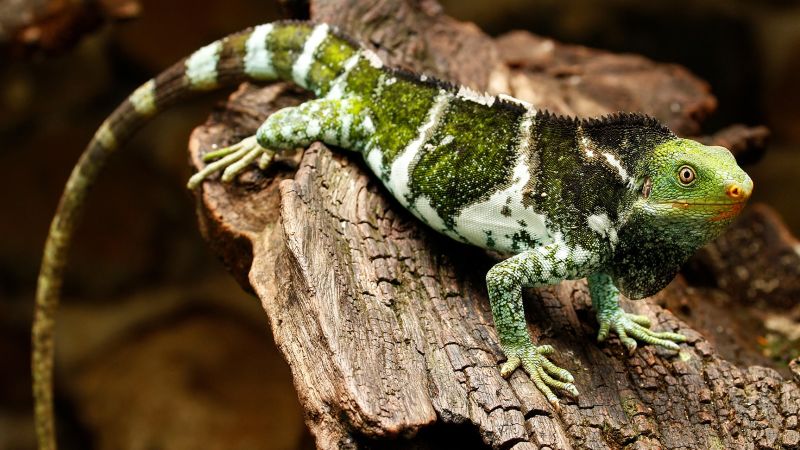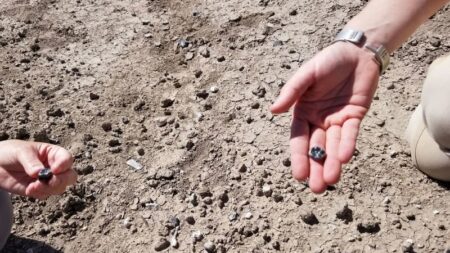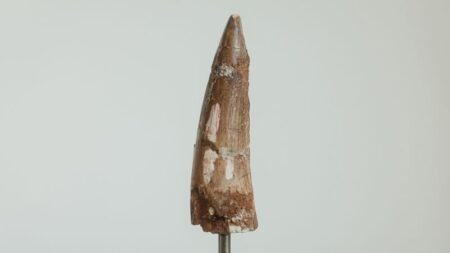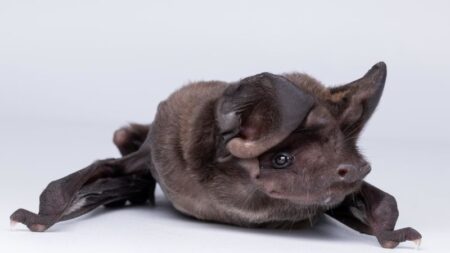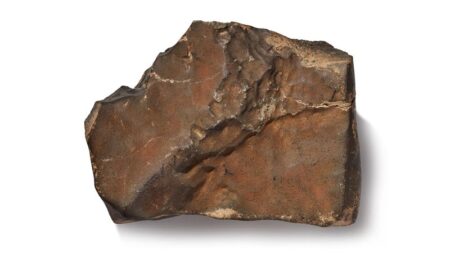In a groundbreaking study, researchers have unveiled that ancient iguanas embarked on a remarkable overwater journey, traversing nearly 5,000 miles across the Pacific Ocean from North America to the Fijian archipelago approximately 34 million years ago. This odyssey is posited to be one of the longest voyages undertaken by any nonhuman land vertebrates, showcasing the incredible adaptability of these reptiles.
The journey began on the western coast of North America, where these iguanas likely utilized natural floating elements—such as uprooted trees and vegetation—to facilitate their extraordinary aquatic passage. The current research offers new genetic insights, illustrating how the Fijian iguanas diverged from their North American desert iguana relatives approximately around the formation of the Fijian islands. This pivotal separation suggests a much more profound evolutionary history than previously considered.
For many years, the origins of Fiji’s iguanas remained a topic of intense debate among scientists. Various theories surfaced, proposing that either an extinct iguana species made the journey from the Americas or that the iguanas migrated overland from Asia or Australia. Dr. Simon Scarpetta, the lead author of the study and assistant professor at the University of San Francisco, conducted extensive research during his postdoctoral fellowship at the University of California, Berkeley, ultimately contributing critical clarity to this enigma.
The study, which was published in the journal *Proceedings of the National Academy of Sciences*, not only affirms the oceanic travel hypothesis but also aims to substantiate various theories concerning the biogeographic origins of Fijian iguanas. This encompasses possibilities of dispersal through Antarctica or crossing the Bering land bridge. Additionally, Scarpetta emphasizes the significance of comprehending such events of water dispersal, as they may shed light on how various species successfully colonize isolated regions over time.
The capacity of iguanas to undertake long-distance ocean travel is not merely speculative. Historical events have showcased this endurance, as evidenced by an October 1998 study reporting that a group of green iguanas reached Anguilla in the Caribbean on rafts of vegetation. These iguanas likely floated nearly 200 miles from Guadeloupe, after being displaced following a hurricane, further illustrating their ability to survive and navigate harsh oceanic conditions.
Scarpetta described the phenomenon of this type of rafting as “sweepstakes” dispersal, a rare but critical event that allows species to reach otherwise inaccessible territories. Major environmental shifts, such as hurricanes, can detach vegetation and propel animals like iguanas into unknown waters. To substantiate the timeline of the Fijian iguanas’ arrival, researchers analyzed the genetic profiles of 14 living iguana species and found a clear evolutionary lineage connecting modern Fijian iguanas with *Dipsosaurus*, a desert iguana from North America.
Fossil evidence supports the notion that these reptiles originated in North America, as no specimens of desert iguanas have been found elsewhere globally. Intriguingly, genetic analysis indicated that Fijian iguanas diverged from their ancestral lineages between 34 million and 30 million years ago, aligning with the volcanic activities that formed the Fijian archipelago.
This new timeline challenges earlier beliefs that suggested a complex overland migration route from South America via Antarctica. Dr. Jimmy McGuire, a co-author of the study and a professor at the University of California, Berkeley, highlights the importance of understanding these evolutionary divergences accurately.
Addressing phylogenetic uncertainties is a common challenge in evolutionary biology. Still, the researchers have employed a comprehensive approach, utilizing diverse genetic data and models to validate their conclusions, ensuring robustness in their findings.
The totality of this study underscores how iguanas are remarkably well-equipped for extreme long-distance travel. Due to their ectothermic nature, iguanas exhibit efficient metabolic processes—allowing them to survive for extended periods without needing significant food intake.
The daunting journey from North America to Fiji may have initially appeared implausible, but simulations suggest it could have taken between 2 ½ to four months, contrary to previous estimates of four to 12 months. Despite the potential for resource scarcity during their journey, the iguanas could have sustained themselves on floating vegetation, showcasing their adaptability.
The findings from this research aim to enhance our understanding of dispersal events in wildlife. Scientists hope to predict which species can endure long-distance travel across oceans, providing insights into how animals have historically colonized various islands through overwater dispersal methodologies. As Dr. Shane Campbell-Staton from Princeton University stated, this research confirms that such dispersal is not merely a theoretical possibility but a crucial factor in shaping the biodiversity witnessed in island environments around the world. Thus, iguanas exemplify the resilience of life in the face of challenging dispersal scenarios, inviting further exploration into how other species thrive across isolated ecosystems.






